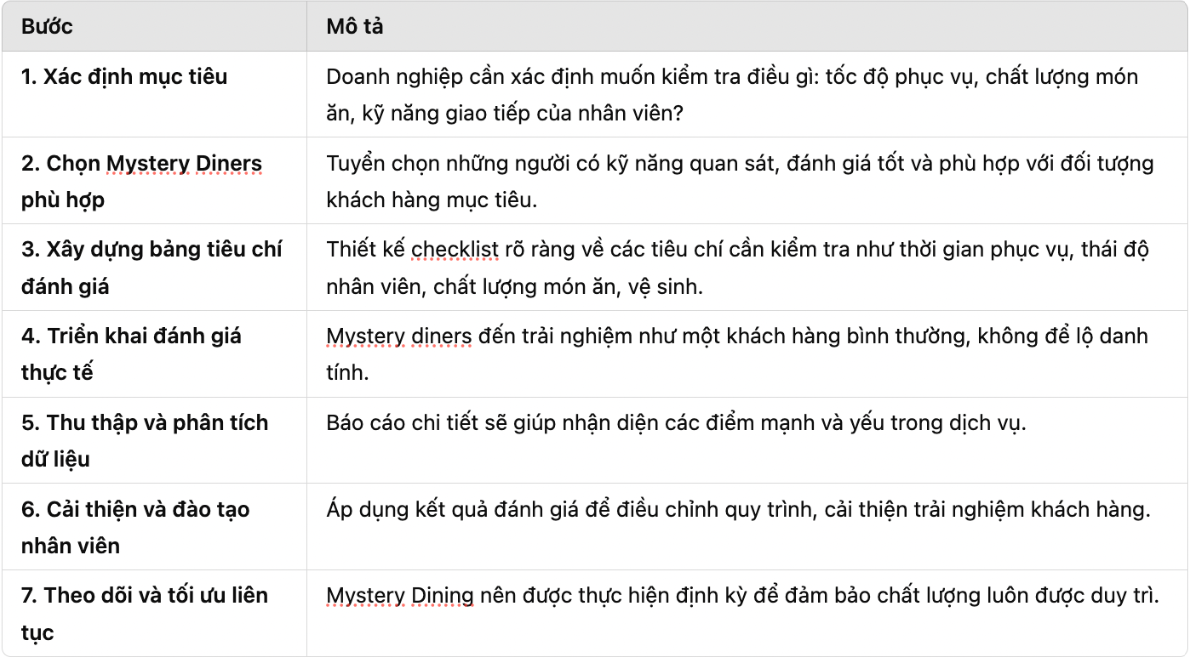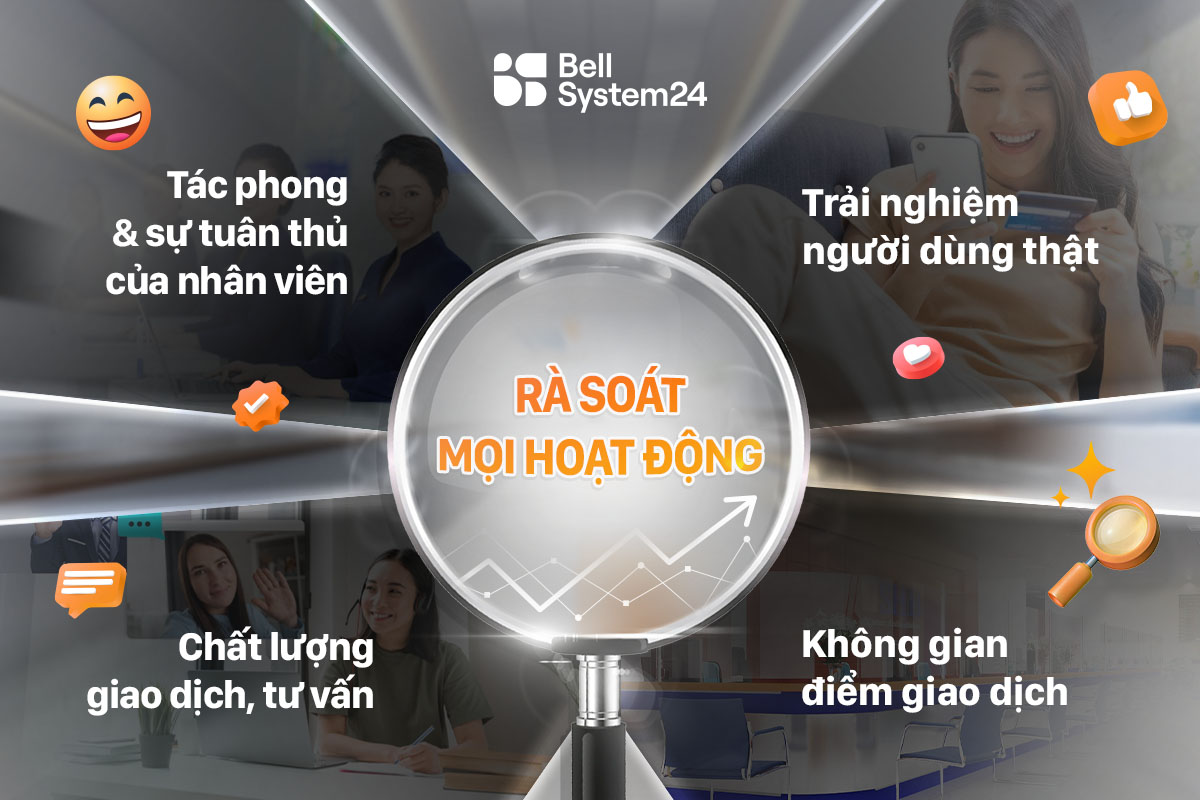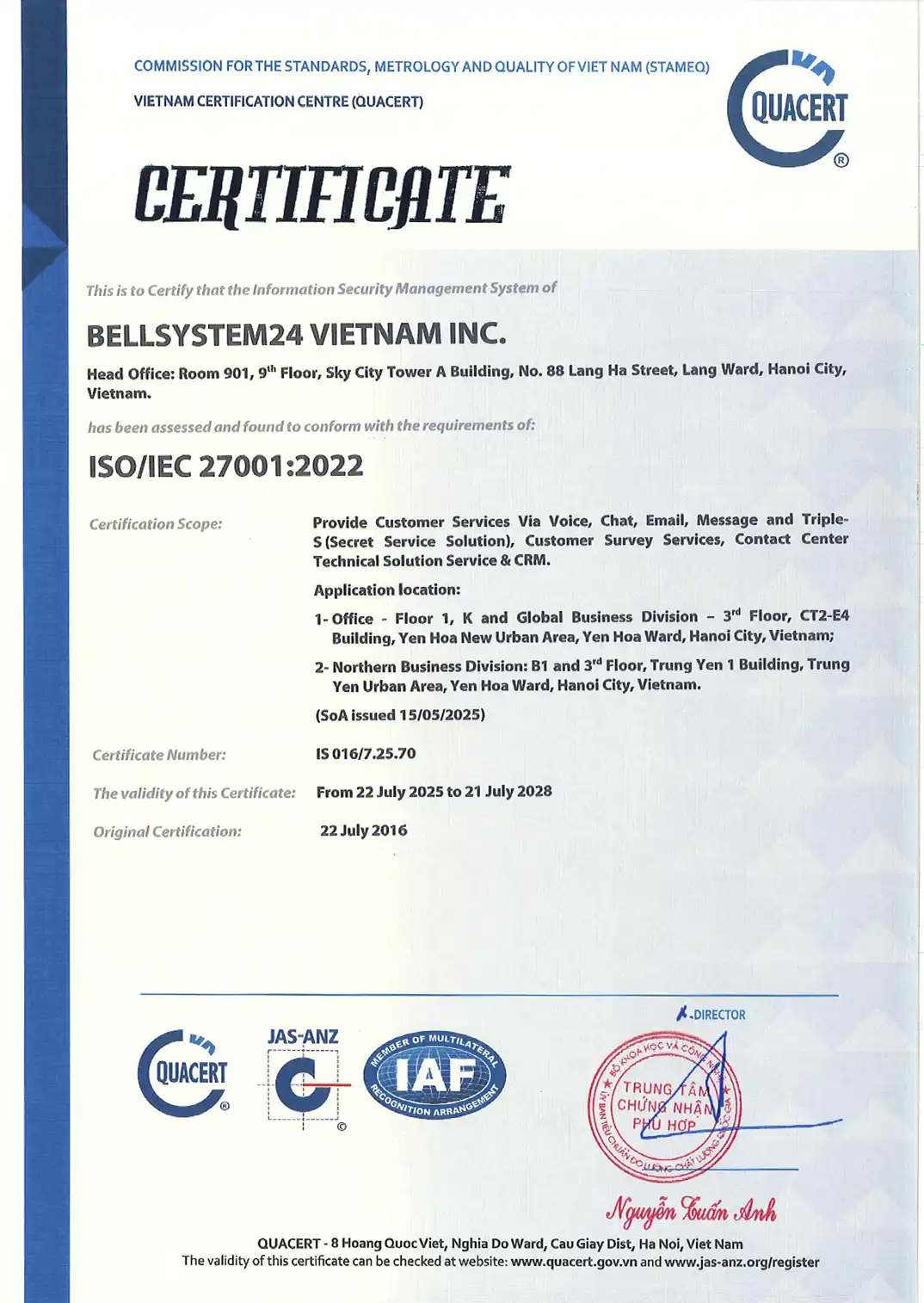1. What is mystery dining?
Mystery Dining is a method of evaluating service quality by using mystery shopper (Mystery diners) – people hired to pose as actual customers, who will come to experience dining and provide detailed evaluations of food quality, customer service, cleanliness, speed of service, and many other factors. The data collected helps businesses identify problems, improve services, and optimize the customer experience.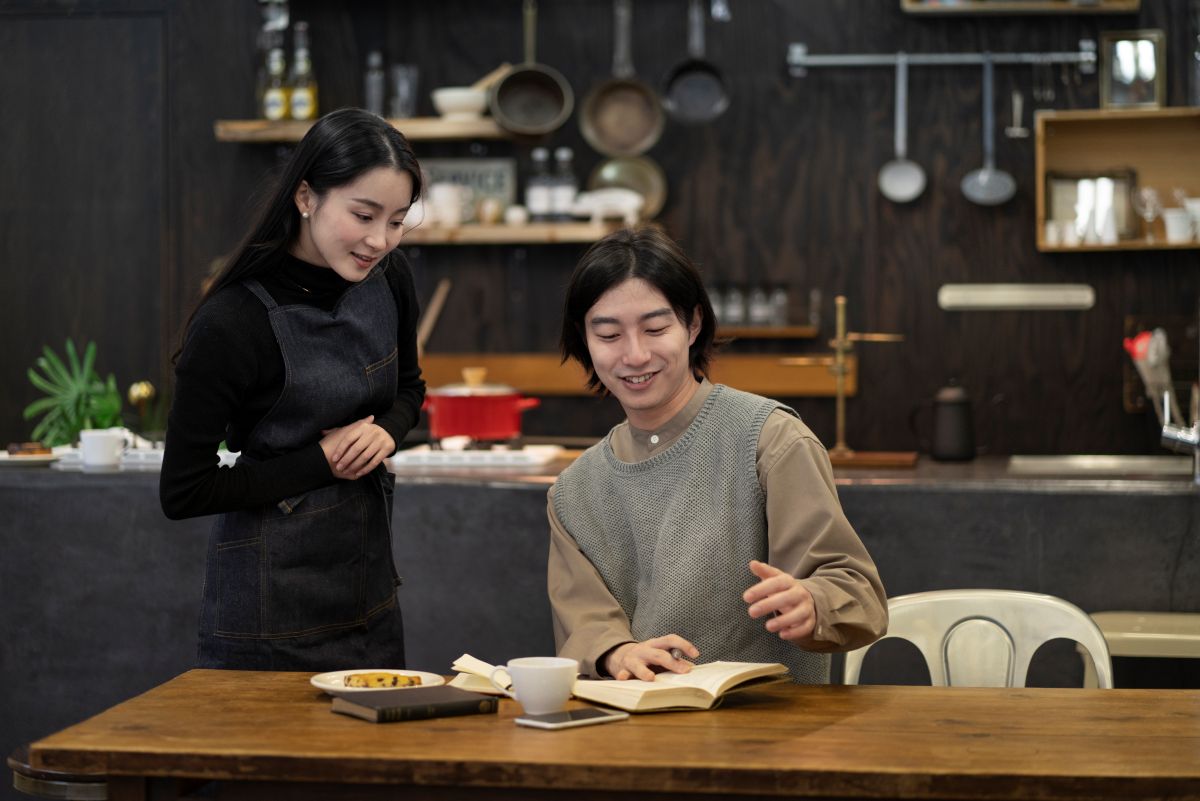
2. Why do businesses need Mystery Dining?
a. Evaluating services from the perspective of actual customers
Unlike internal inspections (using in-house QC staff), mystery diners approach from the perspective of regular customers. This helps businesses understand the genuine feelings of customers when they visit the restaurant.
b. Identify issues before customers actually complain
An unhappy customer may leave without feedback, but mystery dining helps businesses identify issues before they become negative reviews.
c. Measure employee performance
Mystery dining helps determine whether employees are following procedures correctly, communicating well with customers, and maintaining the service quality standards desired by the business.
d. Standardize chain quality
For brands that own a chain of restaurants, the use of secret customer service Comprehensive measures will help maintain consistent service quality standards across multiple points of sale. Addressing limitations such as:
- Internal quality control is familiar and easy to detect, but it does not create situations to test processing capabilities, especially difficult situations.
- Staff at the point of sale are only concerned with sales figures and do not proactively maintain and implement proper business processes and customer interactions.
- Businesses find it difficult to "see" the customer experience because they often focus only on the processes they design and rarely measure customer feedback.
d. Improve service quality & increase revenue
Better service = more repeat customers = increased revenue.
When customers have a satisfying experience, they not only return but also recommend you to their friends and family.
3. Criteria for hiring secret restaurant customers
Recruiting Mystery Dining evaluators (also known as Mystery Diners or Secret Diners) requires very specific criteria to ensure that evaluation reports are accurate, objective, and valuable to the business. Below are the important criteria for recruitment:
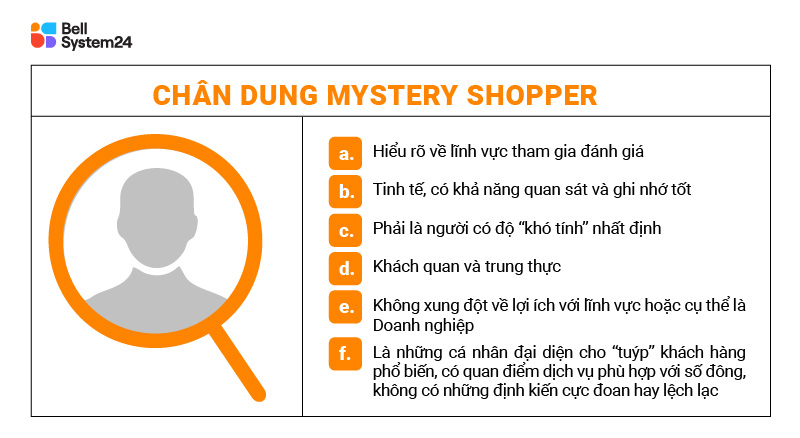
3.1 Keen Observation Skills
- Pay attention to every small detail regarding service quality, food, ambiance, and staff attitude.
- Recognize the subtle differences in service style between restaurants.
3.2 Clear and Objective Report Writing Skills
- Ability to express oneself concisely, coherently, and clearly.
- Provide specific feedback instead of general comments (e.g., "The dish is a bit salty" instead of "The dish isn't good").
- Avoid being emotional; make judgments based on established criteria.
3.3 Confidentiality & Naturalness in Evaluation
- Possess communication skills and the ability to handle situations; do not allow restaurant staff to discover that you are a Mystery Diner.
- Behave naturally as a regular customer to get the most realistic experience.
4. Effective Mystery Dining Implementation Process
Bellsystem24 Vietnam's Secret Customer Service
With its strength as a leading company in the field of customer experience operations and training, Bellsystem24 Vietnam provides mystery shopping services with unique values:
- Evaluate based on customer experience rather than just standard yes/no criteria.
- Professional and competent Mystery shopper team. Members are well trained to ensure the most accurate and subtle understanding and perception of the assessment levels.
- Ability to quickly implement projects nationwide. Flexibility to increase or decrease the number of personnel and evaluation areas at any given time.
- Not only stopping at evaluation reports, but also helping to link quality management activities with other customer activities, helping businesses build a complete customer strategy framework.


